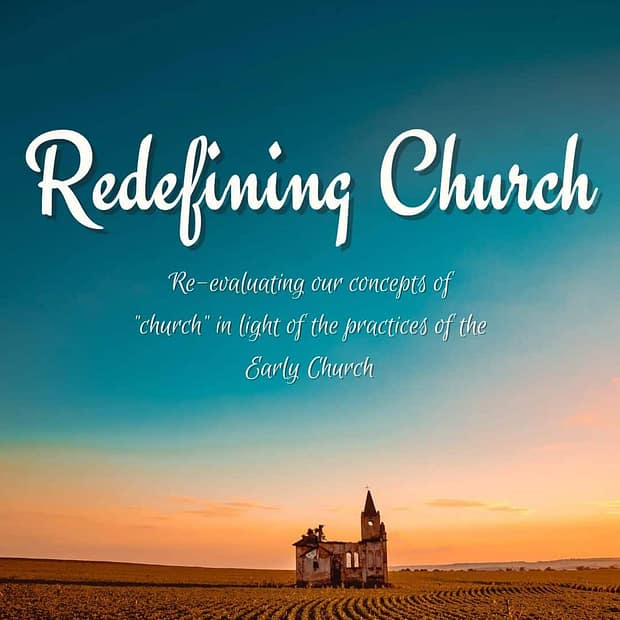The earliest believers modelled a way of being church (as opposed to ‘doing’ church) that is, in many ways, far removed from our twenty-first century concepts of church. In this series on ‘Redefining Church’, we come to the seventh concept explained in Acts 2:46: having glad and sincere hearts. It wasn’t just what the early church did, it was the way that they did it. There was a sincerity and gratefulness in the way that they gathered together to break bread and eat in community. Their dedication to their faith was sincere, not superficial, and this is an essential consideration for the modern church. Too much of modern life is superficial, and there is a danger that this superficiality leaks into our faith and into our churches.
Read: Acts 2:46b
They broke bread in their homes and ate together with glad and sincere hearts.
We looked at the importance of the breaking of bread to the early church in Concept #3, but now we turn from the actual practice of breaking of bread to the way in which it was done. Luke tells us in Acts 2:46 that the early church broke bread in their homes and ate together with glad and sincere hearts. They didn’t just break bread together out of some sense of obligation. They didn’t just do it because that’s what they were meant to do. They shared the Lord’s Supper with gladness and sincerity. They were grateful – not just on the surface, but in their hearts. In the first century, life was much more difficult than it is in the twenty-first century. [ctt template=”4″ link=”VNd3v” via=”yes” ]The earliest believers didn’t have the modern conveniences that we take for granted. And yet they were grateful – probably more grateful than modern-day Christians ever are. [/ctt]When they broke bread together, they were glad in their hearts for all that Jesus had done for them – and their gratefulness was sincere, not superficial.
Breaking bread is still an important part of the modern church, but is it something that we do with glad and sincere hearts? For some churches, communion (another term for the breaking of bread) is a weekly occurrence, whilst for others it is done less frequently. Although Luke doesn’t give us any clues as to how frequently the early church broke bread in their homes, it’s probably safe to say that it was more frequently than most modern churches. Additionally, because communion has become a ritual of the church in modern times, there’s always the danger that it becomes just something that we do because it’s an obligation, rather than something that we do with glad and sincere hearts.
Superficiality is a plague in the twenty-first century. Sincerity – true sincerity – is often hard to find. Although there are Christians who approach the breaking of bread with gladness and sincerity, there will also be a considerable amount who have a superficial faith and a superficial approach to the breaking of bread. Hearts cannot be glad and sincere when people are taking communion whilst mentally planning the rest of their day, wondering about sports results or thinking about next week’s workload. We may not even be aware of our superficiality, because it’s an attitude that has pervaded all areas of our lives, and it seems normal. But held up against the mirror of the early church, would our attitude to the Lord’s Supper match up, or be shown to be lacking?
For the early church, the breaking of bread was not just a ritual practice that had to be done – it was something that was approached with reverence and remembrance, focusing on Jesus with full attention, sincerity and gladness. The modern church has much to learn from this practice. Next time you go to take communion in church, examine your heart to see whether you are fully focused on Jesus’ sacrifice and victory. To Redefine Church, we need to cast aside the superficiality of the modern age and pursue the sincerity and gladness that the early church modelled.

Love this post! A spirit of gratitude and not just ritualistic behavior is much needed in the modern church!